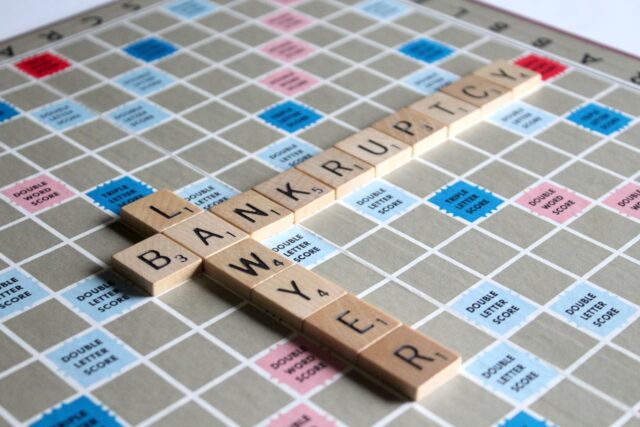
You are tired of negotiating with creditors and are not in the financial position to handle the repayment of your debts. You can file for bankruptcy. Bankruptcy is the legal procedure that acts like a financial cushion for repaying your current debts. In Florida, there are different types of bankruptcies that you can use. An experienced bankruptcy lawyer can help you understand the difference between various types of bankruptcies and determine which type of bankruptcy you need. In this article, we have discussed some helpful bankruptcy tips for you.
Types of Bankruptcy in Florida
There are mainly three types of bankruptcies under the United States Bankruptcy Code in Florida. They are Chapter 7, Chapter 11, and Chapter 13 bankruptcies.
- Chapter 7 Bankruptcy: It is the liquidation bankruptcy in which the non-exempt assets of an individual or organization are sold to clear their debts. It is also called straight bankruptcy. To qualify for a Chapter 7 bankruptcy, you have to pass a means test to show that you are not abusing the financial system by applying for debt relief even though you have been in a financial position to pay your debts.
- Chapter 11 Bankruptcy: This type of bankruptcy chapter is used by businesses to reorganize themselves and carry on their operations. It is a negotiation-type bankruptcy of repayment of debt.
- Chapter 13 Bankruptcy: The reorganization bankruptcy is used by individuals who pay off their debts with a three or five years repayment plan. The bankruptcy court makes a schedule for repayment of the debts by negotiating with your creditors.
Filing for Bankruptcy in Florida
In Florida, if you want to file for bankruptcy, you have to decide which kind of bankruptcy you want to pursue. Filing for bankruptcy is a complex process, and it can be done with the help of a bankruptcy lawyer. The bankruptcy process in Florida can be breakdown into the following steps;
- Filling bankruptcy and element provisions are regulated under the bankruptcy code. The bankruptcy cases are handled by the federal bankruptcy court system in Florida.
- For bankruptcy filing in Florida, you will first need to apply for credit counseling from an approved provider within 180 days before you file when bankruptcy petition. You must gather your financial documents for this process.
- You will consult with the bankruptcy Attorney on which type of bankruptcy would suit your needs the best they will also explain how bankruptcy affects you.
- You will file the relevant paperwork in the bankruptcy code, and the bankruptcy Attorney will handle your case.
- For chapter 7 bankruptcy, you have to file details of all of your assets, whereas, for chapter 13 bankruptcy, you have to prove a source of income from which a 3 or 5 years debt repayment plan is made for you.
The Bankruptcy Process in Florida
You must follow the following steps to file for bankruptcy in Florida;
- Apply for credit counseling: The first step is to apply for a credit counseling course through a proof provider. This must be done within 180 days before filing for bankruptcy.
- Filing for bankruptcy: The next step is to file for bankruptcy petition in the bankruptcy court along with all the relevant paperwork on your assets, debts, and expenses.
- Stay order: Filing for bankruptcy puts an automatic stay that stops your creditors from bothering you.
- Appointment of a trustee: If you have applied for chapter 7 bankruptcy, the court will appoint a trustee for your case. If you have filed for chapter 13 bankruptcy, a bankruptcy attorney will negotiate a debt repayment plan with your creditors.
- Meeting with the creditors: Whether it is a trustee or bankruptcy attorney, you are legally bound to sit in meetings they conduct with your creditors. This is essential for negotiating a settlement that is favorable to you.
- Discharge order: If the bankruptcy court is satisfied that you meet all the requirements, it gives a discharge order. It simply means you are not legally obliged to repay your debts immediately.
- Borrower’s education course: Education course After the discharge order is given by the bankruptcy court.
Bankruptcy is a complicated procedure, and you will need the expertise of an experienced bankruptcy attorney who handles your case efficiently and in a manner that is beneficial to you.
Bankruptcy Consequences in Florida
There are many consequences of bankrupts in Florida. Some of them are;
- Negative implications on credit report: Bankruptcy States on your credit report for more than 7 to 10 years, depending on the type of bankruptcy you have applied for. Chapter 7 bankruptcy stays on your credit report for up to 10 years. On the other hand, Chapter 11 bankruptcy stays on your credit report for up to 7 years. This negatively impacts your credit score and makes future borrowing extremely challenging. You cannot apply for a credit card.
- Losing assets: In Chapter 7 bankruptcy, you lose when you are important assets to repay your debt. That is why it is called liquidation bankruptcy. It can also negatively impact your repetition and may also cause you to lose your job or the trust of people in your credibility to have a stable future.
- Social taboo: Bankruptcy is viewed as a negative phenomenon and can adversely impact your future for years to come.
Bankruptcy Myths in Florida
Most of the misconceptions attached to bankruptcy in Florida stem from the concept that filing bankruptcy means you have lost all of your assets. It is a socially taboo phenomenon associated with financial failure. However, it is important to remember that bankruptcy is a remedy to obtain a financial cushion and serves as a debt relief mechanism.
Conclusion
To sum it all up, bankruptcy filing is a complex legal process with so much at stake. It is always good to know the various types of bankruptcies, the filing process, myths associated with bankruptcy, and general bankruptcy laws before you file the bankruptcy petition. Having an experienced bankruptcy attorney by your side goes a long way on your journey to get out of your debts.










